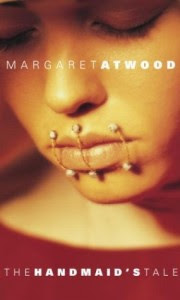
This week I wanted to do something different. In response to Teri's great post Dystopian fiction: Science Fiction for Girls? I wanted to look at the question from a boy's perspective.
But not just any boy - a young me, Julienne lite, as yet untouched by the mindtwisting effects of
James Herbert, Shaun Hutson and Stephen King
(I went through a brief but intense horror stage).
 |
| Me at school! |
One of the main topics discussed in the Worlds of Tomorrow presentation was how referring to future-based 'other-worldy' stories as dystopian instead of Science Fiction made them more likely to be read by girls. What do you think of when someone says Sci-fi?
Sci-fi is one of those boy geek-words, it always has been. Think Star Trek, Star Wars and all the spin-offs and copy-cats and you'll always think of a group of boys who aren't good at sports and aren't brave enough to talk to women. The US sitcom Big Bang Theory has reached over 100 episodes. It's a worldwide hit and four of its five main characters tick all of the Sci-fi nerd boxes.
But what about books? There always seem to be a lot more boys than girls in the Sci-fi/Fantasy sections of bookshops.
Compare old vampire books with today's - scary man in front of a castle vs pale skinned woman on a black background. You'll know Sci-fi is written for girls when Judge Dredd takes off his helmet and there's a tear running down his cheek!
Are you saying that current dystopian novels are just for girls?
No way! I love some of the modern dystopian stories - great characters facing hard trials in harsh futures. But what I like about the older stuff is the 'nuts and bolts' of the worlds they are set in: the way that the embryos are sorted and graded in Brave New World; the six (or possibly seven) different bullets that Judge Dredd's Lawgiver pistol can fire; the television screens in Fahrenheit 451 that fill whole walls and sync the viewer's name into the programme so they feel like they are part of the drama.
And there isn't any of that in modern books?
It's there, all right, but only in the background. Sometimes it feels a bit like the author doesn't want to put too much in just in case it puts people off.
People?
Girls, I suppose
And do you think it would?
No. Not the ones who like Star Wars!
Relationships stuff doesn't put me off. I like it when a boy rescues a girl (or a girl rescues a boy) because they are in love and the evil forces of the scary future police are chasing them in their solar driven hover pods. But as well as knowing how much in love they are, I'd like to know how the pods hover and what happens if they run out of solar power. And I think a lot of girls would too ...
This is how I think I would have answered, but do you agree with teen-me? Are you a girl who wants more 'hi-tech' in your stories, or a boy who likes the romantic relationships? Or do you think that young-Julienne doesn't know what he's talking about?Readers and Writers of YA fiction, tell me I'm right
... or tell me I'm wrong!

